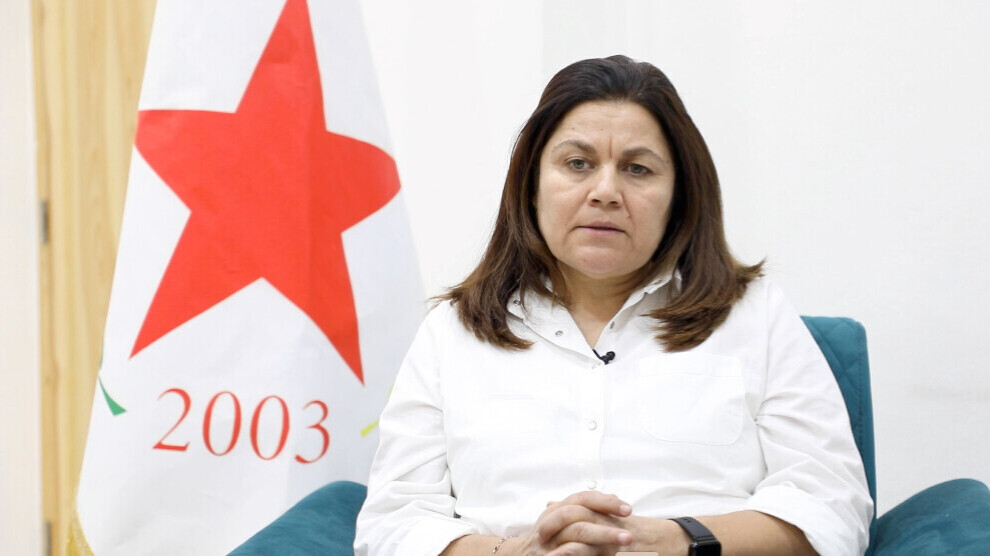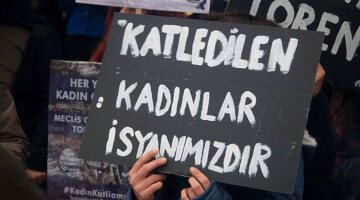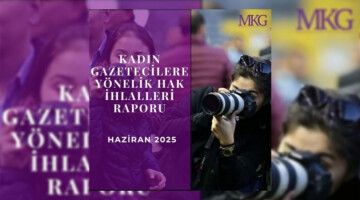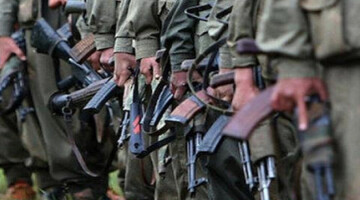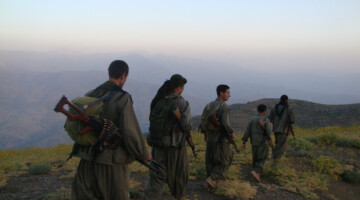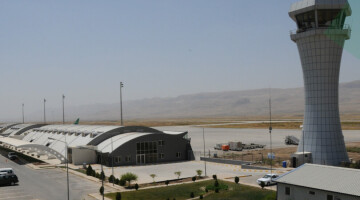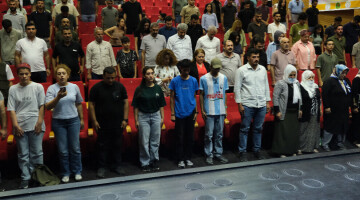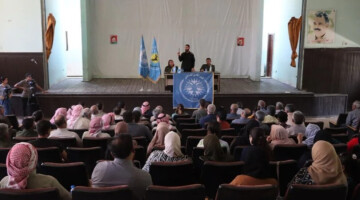Despite international rhetoric of inclusion and unity, the political realities of Syria under the new transitional government remain marked by contradictions. The Autonomous Administration of Northern and Eastern Syria, which has been testing grassroots democratic and multi-ethnic administrative models for over a decade, has so far been systematically excluded from negotiations on the country’s future order.
Speaking to ANF, Foza Yûsif, a member of the Presidential Council of the Democratic Union Party (PYD), commented on the political developments in Damascus, the security concerns in light of arbitrary arrests of Kurds, and the pressing question of returning to the Turkish-occupied areas in northern Syria. Her message: anyone who is serious about structural solutions must be prepared to recognize real power relations and existing self-governance structures.
After the adoption of a transitional constitution in Damascus, a gathering titled “National Dialogue Conference of Syria” was held, within which a transitional government was formed. Despite a previously agreed eight-point accord, you and the Autonomous Administration of North and East Syria were excluded from these political processes. Reports indicate that preparations are also underway to establish a nationwide parliament. Was there any consultation or dialogue with your side in this context?
As far as we can follow developments, the transitional government is indeed preparing to convene an all-Syrian parliament. Unfortunately, to this day, no formal contact has been made with our negotiating team. Likewise, the democratic institutions of the Autonomous Administration of Northern and Eastern Syria and the civil society people’s councils have so far been completely excluded from these consultations.
Already in earlier stages, during and after the proclamation of the transitional constitution, the formation of the government, and the so-called national dialogue conference, a systematic exclusion of our structures could be observed. We have repeatedly analyzed and criticized these shortcomings publicly. Unfortunately, this pattern is repeating itself.
The building of a new, democratically constituted Syria requires a cooperative and inclusive transitional process in which trust can be established between the different political and social actors. The current strategy of exclusion undermines this ambition. It reproduces old patterns of domination and weakens the political coherence of the country. Sustainable stabilization of Syria can only succeed if all social forces, especially those that have been practicing democratic self-administration for years, are included on an equal footing. Only on this basis can viable agreements be reached.
There are reports that specific people were selectively invited to participate in the planned parliament. How do you assess this selective form of inclusion?
Indeed, we have received numerous indications that contact was made with individual personalities to persuade them to participate in the planned parliamentary formation. From our perspective, this practice is highly problematic. Such participation on an individual level, without institutional legitimacy and without formal representation of the Autonomous Administration of North and East Syria, runs counter to the claim of democratic inclusion.
We see this as a politically calculated trap: individuals who participate on this basis would not be representing the population or the institutions of our region, but would objectively contribute to marginalizing legitimate democratic structures. That is why we appeal to all intellectuals, activists, and personalities from our region not to follow this strategy.
Our goal remains the construction of a federal, pluralistic, and democratic Syria. For this, political representation, institutional dialogue, and mutual recognition are necessary. Official negotiation structures exist for both the North and East Syria region and for the Kurdish side. Only through dialogue with these bodies can sustainable results be achieved. Any form of individual cooptation, however, weakens the collective political will of our people.
Recently, there have been arbitrary arrests of Kurdish citizens in Damascus and Aleppo without any stated reasons. What is your assessment of these incidents?
The recent arrests of Kurdish citizens in Damascus and Aleppo are cause for great concern. These measures are apparently being carried out without any legal basis and create the sense that the authoritarian practices of the former Syrian regime are returning in a modified form. Public perception is accordingly alarmed.
According to the information available to us, many of these arrests are based on vague or fabricated accusations, such as alleged connections to the Autonomous Administration or to the Syrian Democratic Forces (SDF). This practice is all the more contradictory given that the transitional government itself has reached agreements with the SDF and has partly cooperated with our structures.
The government urgently needs to clarify which forces are behind these repressive measures and to ensure that they are stopped immediately. If this does not happen, distrust of the political process will deepen further. Arbitrary arrests undermine fragile trust, foster social fragmentation, and evoke memories of systematic repression in the past. They are in clear contradiction to a democratically oriented new beginning for Syria.
You have stated that a commission was established to promote the safe return of the population to occupied areas, especially Afrin and Serêkaniyê. Have there been any concrete steps in this regard yet?
Although the commission in Damascus initially promised a meeting after the Eid al-Adha holiday, the body intended for Afrin has so far not commenced its work. Despite repeated offers for dialogue, there has been no response from the transitional government to date. This is negatively affecting the already tense situation.
The question of return for displaced persons is a central challenge for the entire Syrian state. All displaced people, particularly those from Afrin, Serêkaniyê, and Girê Spî, must be able to return to their home regions in dignity and safety. So far, however, there are no reliable initiatives in this regard.
The ongoing human rights violations in Afrin, including arbitrary arrests, extortion, and violence, show that a safe return process is not yet guaranteed. Therefore, the appointed commissions must convene without delay and jointly develop measures for security, infrastructure, and social stability. Unilateral steps will not bring a sustainable solution. On the contrary, the population living there has suffered multiple displacements and is living in precarious conditions. The responsibility of the transitional government is evident.
Is there anything else you want to add?
All political and social forces in Syria are called upon to take responsibility for building a democratic, pluralistic, and stable state. It requires a collective commitment to dialogue, understanding, and political inclusion. Any practice that weakens, obstructs, or reverses the construction of this new Syria must be avoided. Our common goal must be to create a political order that guarantees the rights of all peoples and communities, within the framework of justice, equality, and self-determination.

